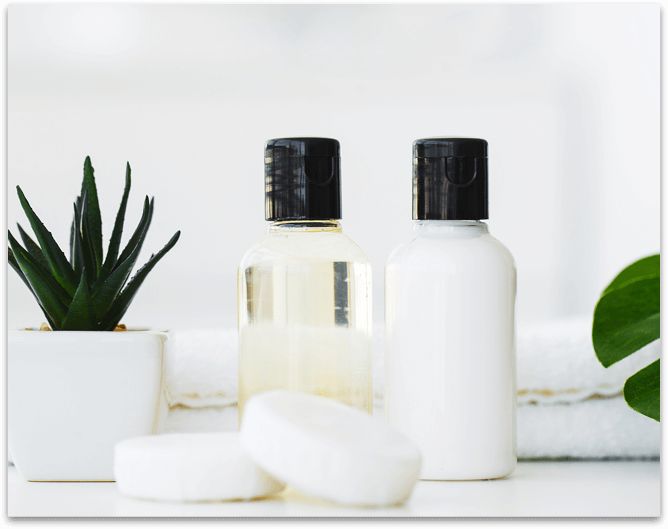Friendly fats are an important part of a healthy diet. Fats perform many roles in the body including: energy storage, insulation, supporting cell health and growth, initiating metabolic reactions, and facilitating biological signals.

Do any of you remember the Oprah episode when she had lost a lot of weight and rolled out a wagon of fat? It was an unforgettable moment, probably at the peak of the anti-fat craze. Back in the day we were told that eating fat caused us to be fat and unhealthy. Then the fat-free food market took off with a plethora of low-fat, high sugar packaged foods. And we got fatter and fatter.
The right type and amount of fat is critical for optimal health. While our bodies produce some of the necessary fats, they do not produce the essential fatty acids (EFAs) and so we must get Omega-3 and Omega-6 fats through our diet. Make no mistake a fat-free diet is not the cure it was once sold to be.
Did you know that our bodies have two types of fat? Not all fat is the same. Scientists have named the two types brown fat and white fat.
White fat is the primary fat in the adult body. It is characterized by a single cell. It has a number of important roles, including, energy reserve, insulation, protection for internal organs, and hormone production. Even white fat has a critical role in maintaining health but an excess of white fat cells can create problems.
Too many white fat cells in the body is associated with an increased risk of cancer, sleep apnea, arthritis and perhaps most importantly metabolic syndrome (symptoms of increased risk of heart disease and diabetes). Overeating and lack of activity cause excess white fat.
Brown-fat cells, on the other hand, have a large number of mitochondria which burn energy and produce heat. Individuals with low BMIs have been found to have more brown fat than those with higher BMIs. Scientists believe that brown fat has the added ability to utilize triglycerides and sugar from the bloodstream, which could decrease the risk of high blood pressure and diabetes.
Although brown fat levels decrease dramatically as we mature (babies have the highest levels), there are ways we can increase our brown fat. Regular exercise, adequate sleep, cold temperatures and resveratrol can facilitate the conversion of white fat to brown fat.
Both white and brown fat are critical for our health. When our bodies enter starvation mode, white fat stores keep us alive. However, our modern lives have caused us to store more white fat than is healthy. New studies suggest that white and brown fat levels are related. Overeating causes both an increase in white fat as well as reduces brown fat’s metabolic effectiveness. The worst of both worlds.
Fat is the body’s preferred fuel because it provides more than two times the amount of energy of carbohydrates and proteins. Ingesting too little fat as part of a weight-loss diet can also cause increased stress, anxiety and low-self esteem. Eating enough fat as part of a diet sufficient in calories and other nutrients guards against these risks. White and brown fat are critical for our health. When our bodies enter starvation mode, white fat stores keep us alive. However, our modern lives have caused us to store more white fat than is healthy.
Our brains require fats for optimal health. Fats facilitate the production of feel-good brain chemicals, such as serotonin and dopamine, in the brain. They improve our ability to concentrate, reduce foggy thinking and lift depression. For example a diet low in omega-3 fatty acids, in particular, can cause mood swings, depression, increased stress and anxiety. In severe cases, low-fat diets have been linked with suicidal tendencies.
Researchers have shown that the consumption of fat is associated with a reduced risk of Alzheimers and other dementia related diseases. Additionally, inadequate Omega-3 intake is linked to an increased risk of other mental health disorders including: attention deficit disorder, dyslexia, bipolar disorder, and schizophrenia.
Myelin, which insulates the nerves and allows messages to travel faster along the nervous system, is primarily fatty tissue.
Fat consumption also has a significant impact on our endocrine systems. Hormones are produced with fats and cholesterol. Prostaglandins, hormone like substances that regulate many body functions, are comprised primarily of fats. A diet low in cholesterol can cause a significant impairment in the normal production of the sex hormones estrogen, progesterone and testosterone.
reduction in testosterone levels. Although testosterone is the primary sex hormone for males, women have small amounts as well. Our wellbeing is dependent on the levels of our hormones but also the levels of each hormone relative to the others.
The appropriate level of testosterone is critical for optimal health in both men and women. Low testosterone levels cause decreased muscle mass and libido. It also associated with increased body fat, osteoporosis and depression.
A fat-free diet can also cause vitamin deficiencies. The fat soluble vitamins, A, D, K and E require dietary fat to be absorbed into the body. These vitamins support energy production, cell functioning and the immune system.
Dietary fats transport the vitamins through the digestive tract to the small intestine (where they are broken down by bile and move through the cell walls, enter the bloodstream, and circulated in the body for various functions). Finally, any excess vitamins are carried to the liver, where they’re stored until the body needs them.
Healthy fats are critical to the health of individual cells forming a protective membrane around each one. The fat layer beneath the skin insulates the body as well as keeps the epidermis supple and hydrated. Dry, flaky skin is a sure sign of a fatty acid deficiency.
Fat intake is the first line of defense in maintaining youthful skin and hair, however topically applied oils can also help reduce dryness and wrinkles.
I have discovered that for me, good fats are absolutely essential for my wellbeing. I have noticed a significant difference in my ability to focus and stay clear for work since I have made a concerted effort to include healthy fats in my diet everyday. I am certain that they are helping to manage my perimenopausal hormonal shifts.
Fats are also critical for me to feel satisfied after eating especially eating primarily raw foods. They take longer to digest so they keep hunger at bay for a longer period of time. For now, fats are my friends.
My diet includes a significant amount nuts and seeds, avocado and coconut. I am eating much more fat than I ever dreamed I would. And for me, weight loss has never been easier.
Making the best food choices requires each of us to take the time to find out what foods support our health and which one’s do not. It sounds complicated but it can be as simple as keeping a food journal for a few weeks. Or ensuring that we eat a variety of foods.
Each one of us has our own biochemistry and there for our unique dietary needs. Over the years I have discovered that other’s experiences can help to inform my decision-making but at the end of the day the proof is in how I feel with the changes I have made.
Frequently asked questions about friendly fats.
Omega 3 fats are anti-inflammatory and are needed to balance the inflammatory Omega 6 fats we consume.
Good sources of Omega 3s include:
Unsaturated fats should be the primary source of dietary fats. Saturated fats are ok in moderation. Trans fats (hydrogenated oils) should be avoided.
Unsaturated fats include:
Fats and cholesterols are both lipids but cholesterol is a more complex molecule. Cholesterol is found only in animal foods and is not used for energy stores.
The relationship between dietary fats and cholesterol is not completely understood, however, there is some evidence that high levels of saturated fats (animal fats) can contribute to high cholesterol levels.
High cholesterol and, in particular, LDL levels are associated with a higher risk of heart disease.
Rutgers University.
“Why brown fat is good for people’s health: Study may help lead to drugs aimed at diabetes and obesity.”
ScienceDaily. ScienceDaily, 21 August 2019.
Columbia University School of Engineering and Applied Science.
“Innovative technique converts white fat to brown fat: Bioengineers develop a simple tissue-grafting approach to increase brown fat mass in the body and study its effect on metabolism and weight.”
ScienceDaily. ScienceDaily, 1 August 2018.
https://www.sciencedaily.com/releases/2018/08/180801125022.htm
Technical University of Munich (TUM).
“Food activates brown fat: How brown adipose tissue reacts to a carbohydrate-rich meal.”
ScienceDaily. ScienceDaily, 29 August 2018.
Fernando Gómez-Pinilla
Brain foods: the effects of nutrients on brain function
Jul 2008
Patrick Seale and Mitchell A. Lazar
Brown Fat in Humans: Turning up the Heat on Obesity
Jul 2009
A new chapter is calling.
Women Don’t Retire: How to Live Your Passion and Leave Your Legacy is a soulful guide for women of color navigating life after leadership. Whether you’re stepping away from your career—or stepping deeper into your purpose—this book offers stories, reflections, and wisdom to help you align with what’s next.
Ready to redefine what “retirement” looks like?


